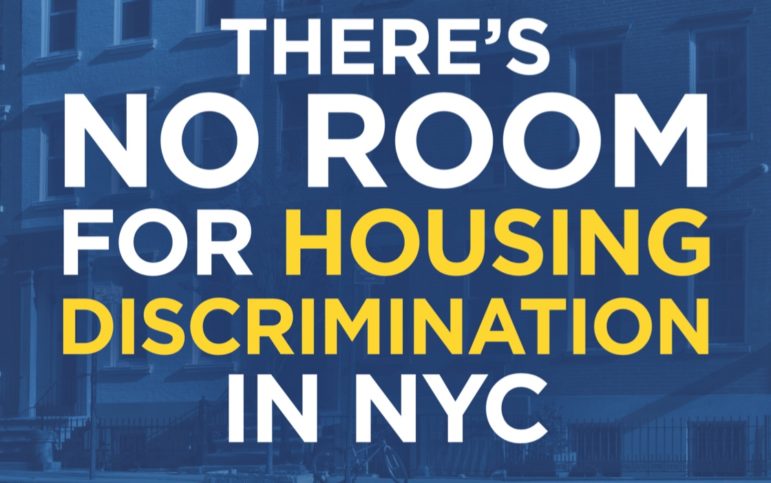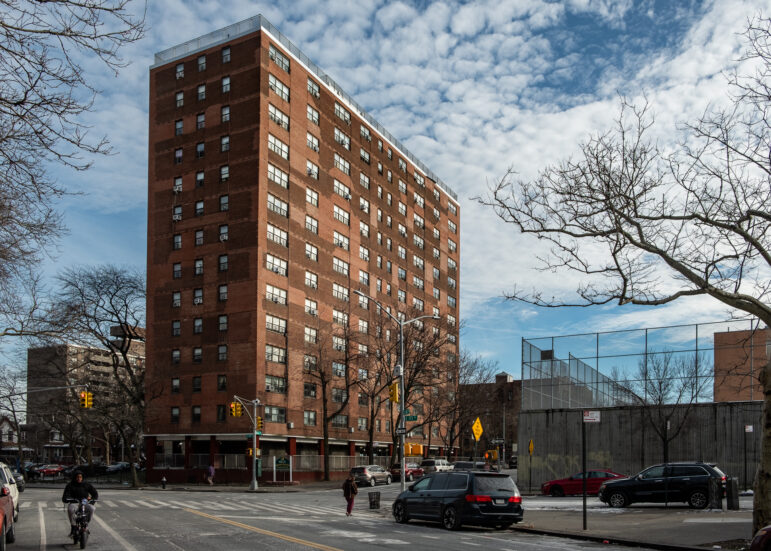The city’s lawmakers and housing agency seem poised to reintroduce and pass a more affordability-focused J-51 tax program to help fix up apartments—but some housing stakeholders are lukewarm on the prospect.
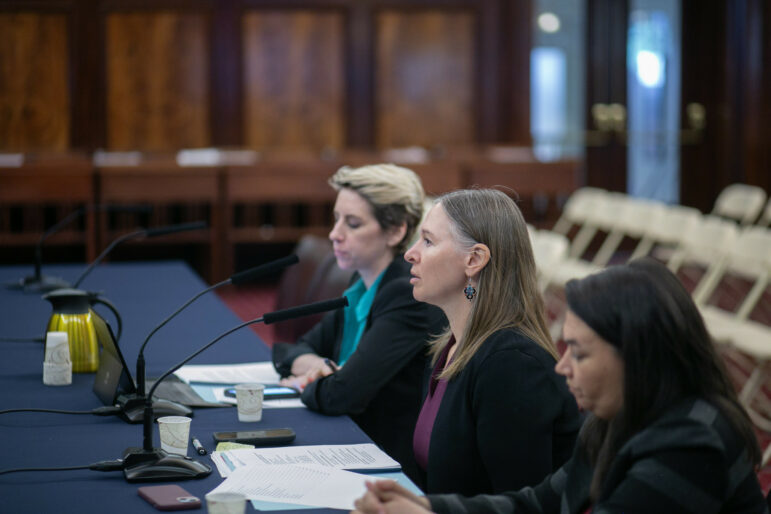
William Alatriste/NYC Council Media Unit
Kim Darga (center), deputy commissioner for the city’s Department of Housing, Preservation and Development, testifying before the City Council at a hearing on the J-51 program last month.Resurrected from the ashes of 2023’s otherwise failed state housing budget, the Adams administration and City Council are evaluating a previously expired tax abatement that could help facilitate renovations in rental apartments, co-ops, condos, and the conversion of nonresidential buildings to apartments.
Established in the aftermath of World War II in response to a shortage of moderate-income rental housing, New York’s J-51 tax abatement incentivized property owners to renovate tenement buildings and bring them up to code. But state lawmakers let the program sunset in 2022 as participation dwindled over its last decade, with abatements alone down over 77 percent in that period.
Now, with the state’s blessing, Councilmember Pierina Sanchez, who chairs the Committee on Housing and Buildings, has proposed legislation to bring J-51 back. At a May 30 hearing, she and her colleagues heard testimony from the Department of Housing, Preservation and Development (HPD), which would administer the latest rendition of the benefit—with some notable changes.
“As our city evolves, so must J-51,” said Kim Darga, HPD’s deputy commissioner for development, during the department’s opening testimony. “This will be a better, more efficient, more targeted J-51 that we think more building owners will choose to use, helping us meet many of our housing goals at once.”
With a focus on low-cost, affordable housing, the proposed new J-51 would be granted to residential buildings in which half the units rent to households earning up to 80 percent of the area median income (AMI), about $111,840 for a family of three.
The abatement could also cover buildings already receiving “substantial government assistance,” Darga said, such as Mitchell-Lama buildings, which provide affordable rental and cooperative housing to moderate and middle-income families, as well as coop and condo buildings with an average value of $45,000 or less per unit—up from $35,000 in the expired version.
According to HPD, around 700,000 homes in the city would be eligible for the proposed abatement, 70 percent of which are rental units and 30 percent of which are coops and condos.
Additionally, the proposed tax break would be limited to an abatement, or a tax reduction for a period of time, as opposed to an exemption, which had previously been an option. An exemption reduces the taxable value of the property.
Sanchez’s legislation would reduce property taxes by 70 percent of the building’s eligible improvement costs, applied at a little more than 8 percent each year for up to 20 years but only after the work has been completed, inspected, and approved by HPD. Improvements might include a new heating system, plumbing, windows, or roofing.
Darga testified that a new J-51 could also benefit building owners trying to comply with Local Law 97. That law goes into effect this year and aims to reduce the city’s carbon footprint by setting a cap on the amount of emissions larger buildings can emit over a period that becomes more strict over time.
The benefit could help pay for much of the “base system type work” needed to come into Local Law 97 compliance, Darga said. Brooklyn Councilmember Lincoln Restler agreed, saying the Adams administration has so far “not done enough to make financial incentives available to buildings that want to comply.”
Meanwhile, advocates for rent-stabilized tenants hope that the new J-51 abatement could provide landlords with an alternative to Major Capital Improvement, or MCI, requests. Through MCIs, landlords can increase rents to cover building-wide work.
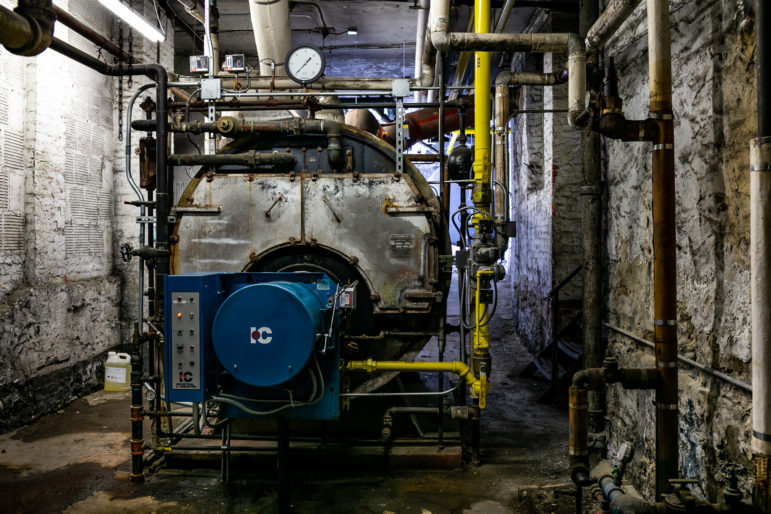
Adi Talwar
New boilers, and new ways of controlling boiler performance and ensuring that heat is delivered efficiently to buildings, are likely to be on the to-do list for many property owners facing the new requirements of Local Law 97.The new J-51 would continue to give building owners the option of using either method to help pay for renovations. However, the two cannot be used simultaneously on the same improvement, and owners would need to waive the collection of MCI rent increases in order to apply for J-51 for the same project.
Additionally, the new program would give HPD new means of enforcement compared to its predecessor. Not only would the agency be able to revoke the benefit from non-compliant building owners, as was the case in the past, but they would also be able to impose fines, extend the mandatory rent stabilization period, or even require the building to add additional rent-stabilized affordable units.
This should come as welcome news to tenant advocates who’ve long held that HPD and the state’s Homes and Community Renewal agency (HCR) left J-51 largely unenforced during its prior tenure.
“Tens of thousands of apartments were removed from Rent Stabilization, despite having received the benefits, even at times while they were in receipt of the benefits,” said David Hershey-Webb, a law partner at Himmelstein McConnell Gribben & Joseph, which represents tenants.
First reported in a scathing 2016 article by ProPublica, an estimated 50,000 apartments took advantage of the J-51 tax break over two decades while landlords continued to charge market rents. When then-Gov. Andrew Cuomo led an effort to return these apartments to stabilization, less than half complied.
Hershey-Webb stressed that, unless HPD collaborates with HCR to develop a more effective enforcement mechanism, “The same thing is going to happen.”
While the new means of enforcement might sound promising, Darga admits that they are only “starting to think” about how they would actually implement some of the new enforcement levers at their disposal and were looking at models to enforce compliance on a bigger scale.
Speaking with Tricia Dietz, assistant commissioner at HPD after the hearing, she noted that the agency had strengthened its enforcement of rent stabilization over the years for other tax incentive programs, including actively reviewing annual rent registrations in collaboration with the HCR’s Division of Housing and Community Renewal (DHCR).
The agency is assessing the implementation of a similar practice for the new J-51 program, if passed, “to ensure that the buildings that participate in J-51 are registering their units annually with DHCR.”
During the hearing, Darga touched on the criticism that the current “certified reasonable costs schedule,” or CRC, which dictates the reimbursement amounts for property owners undertaking improvements, was long out of date. She said they’d be updating it and that they “hope the CRC schedule will be more tuned to actual costs going forward.”
According to Dietz, HPD believes that the new J-51 is more efficient and straightforward for interested landlords. By “streamlining” the benefit levels and requirements, the new system allows owners to more easily determine their eligibility and have a clearer expectation of the abatement they could receive.
In written testimony, the Real Estate Board of New York (REBNY), a powerful industry lobbyist, encouraged the Council to proceed with Sanchez’s bill but said that the program is “not a panacea” and that the affordability requirements, along with an inability to pair MCI with J-51, limit the program’s impact.
It is “imperative” that city estimates for reasonable repair costs reflect “rising maintenance and construction costs and enable owners to make much-needed capital upgrades,” REBNY wrote.
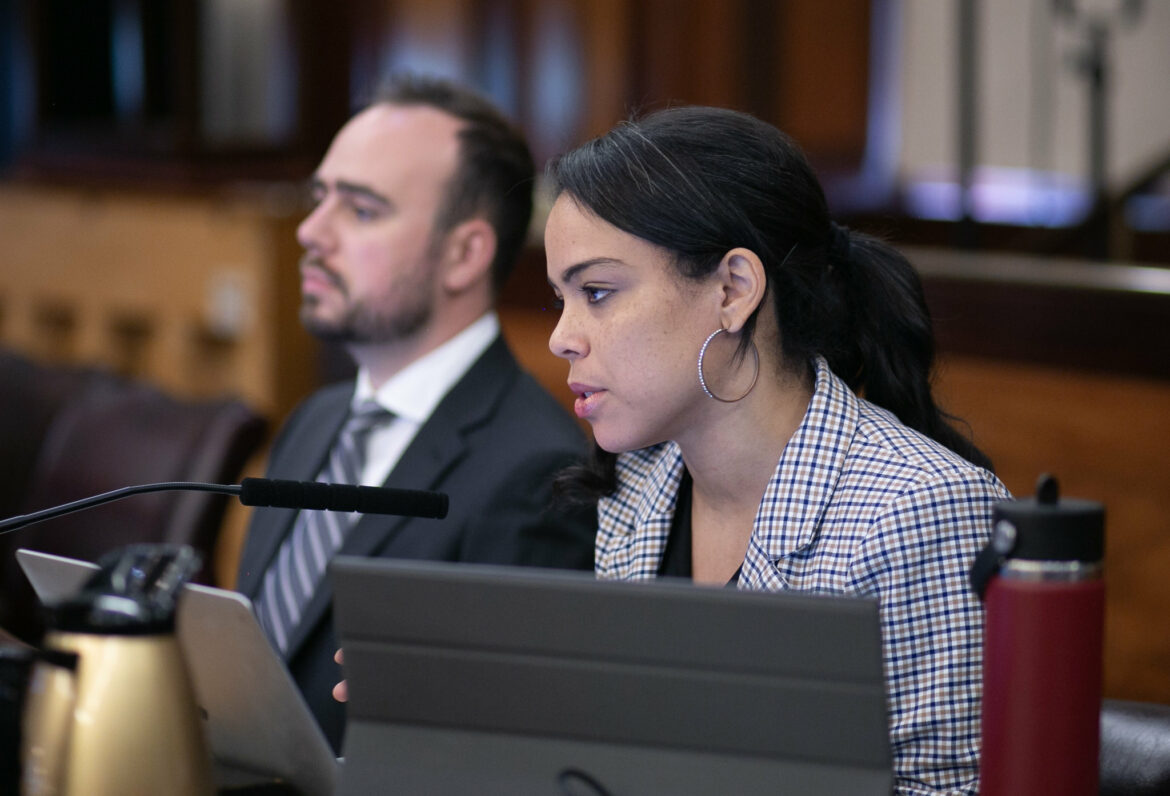
William Alatriste/NYC Council Media Unit
Councilmember Pierina Sanchez, who chairs the Committee on Housing and Buildings, has proposed legislation to bring J-51 back.Eligible building owners would have to apply within four months of completing an improvement and submit proof of costs to HPD. The improvements would need to have been completed within 30 months to qualify. Owners can’t get the benefit if they have any open building violations with HPD, and all applications would come with a $1,000 fee.
If approved by the City Council, the new J-51 would apply to improvements and renovations completed after June 29, 2022, when the predecessor program ended, and before June 30, 2026.
While the revived program appears to have the backing needed from the Council and Mayor Eric Adams to pass by the June 30 deadline next year, Darga acknowledged to Councilmember Alexa Aviles that her team is “still evaluating resources” to administer the program.
“It’s a blessing and a curse,” said Jay Martin, executive director of the Community Housing Improvement Program (CHIP), a landlord trade group representing the owners or managers of some 400,000 rent-stabilized properties in the city.
He contended that the tax benefit works when inflation is low and, consequently, costs are manageable, but that in the current financial climate, with high loan interest rates to finance repairs, rising expenses, and insurance rates, “it’s really hard to see costs going down anytime soon.”
Still, others remain optimistic that the new J-51 will offer landlords a much-needed means of financing improvements without passing the cost on to tenants.
Barika Williams, executive director of the Association of Neighborhood & Housing Development (ANHD), a member group of nonprofit developers and tenant organizations, welcomed the changes to the program in light of sky-high rents.
“This is a smart and streamlined way that the city can look at that and say, ‘We have some way of addressing this,’” Williams said.
J-51 has been a popular benefit for ANHD members in the past and offers landlords some peace of mind when funding improvements, she added, as they know they will recoup the cost in a few years.
“It’s a great way to finance some of this stuff,” Williams said “It’s not always the smoothest and most streamlined. But it’s definitely one of the programs that we know folks tend to use.”
To reach the reporter behind this story, contact Chris@citylimits.org. To reach the editor, contact Emma@citylimits.org
Want to republish this story? Find City Limits’ reprint policy here.


